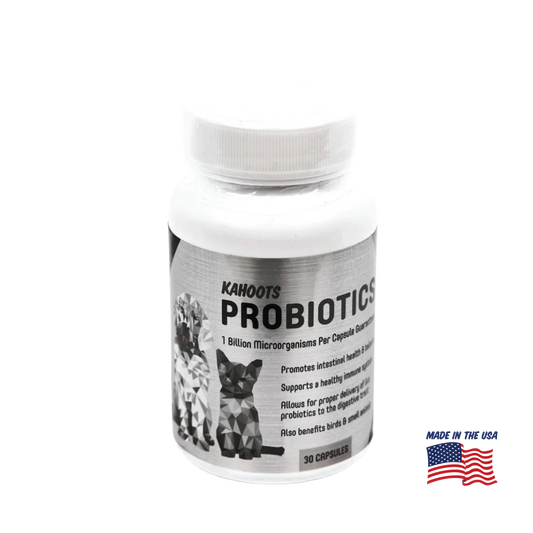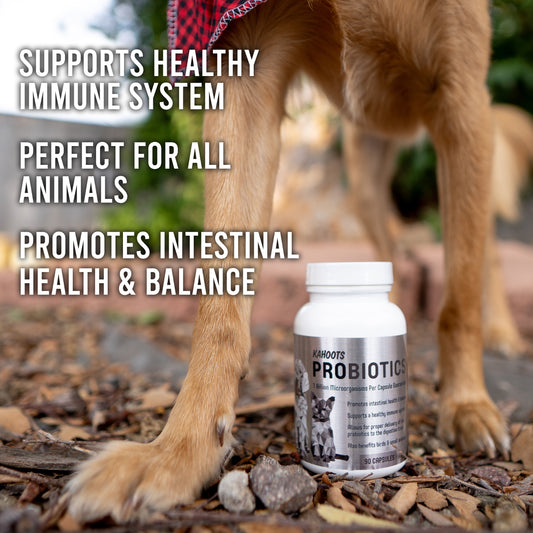Probiotics might not be visible to the naked eye, but their impact on your dog's health is immense. These microscopic benefactors reside within your dog's gastrointestinal tract, working diligently to maintain a balanced internal environment. Think of them as a vast army of good bacteria and beneficial yeast standing guard to promote health and stave off illness.
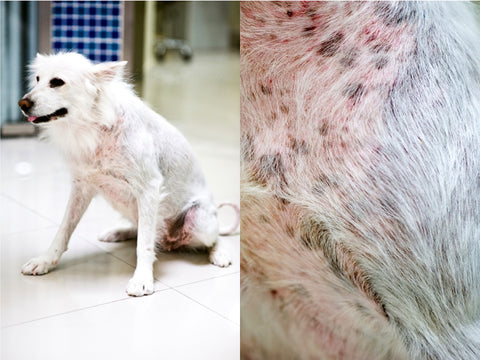
After 6 weeks of treatment:
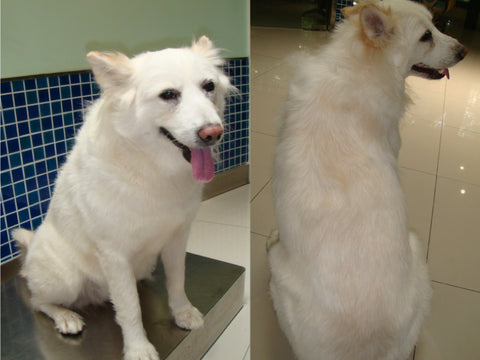
The Role of Probiotics in Your Dog's Gut Health:
- Digestive aid: Probiotics help break down food into absorbable nutrients.
- Nutrient synthesis: They are instrumental in creating essential vitamins.
- Pathogen defense: Probiotics combat harmful bacteria, keeping your dog's system in check.
- Immunity boost: These microorganisms play a crucial role in strengthening your dog's immune system.
- Mood regulation: They interact with the gut-brain axis, influencing your furry companion's mood and stress levels.
The Specific Advantages of Probiotics for Canine Well-being:
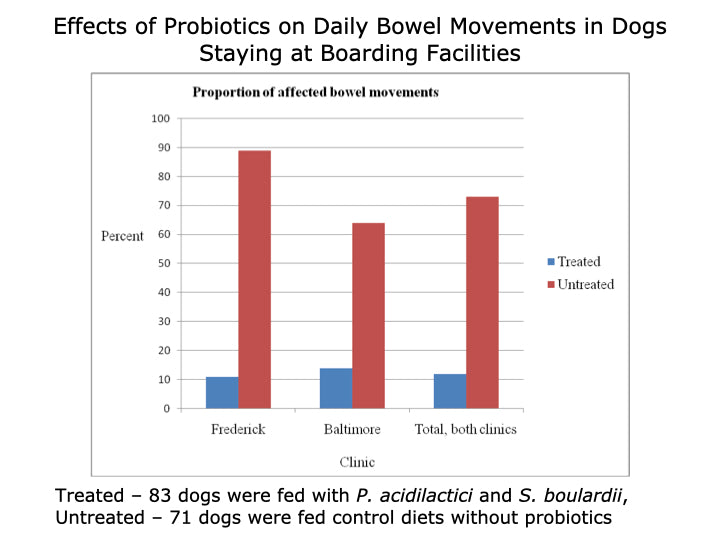
Research indicates that various strains of probiotics bring forth particular health benefits for dogs. For instance:
- Lactobacillus and Bifidobacterium strains support immune function and yeast management.
- They may also help alleviate anxiety and combat stress in your pet.
- P. Acidilactici can offer relief from diarrhea or food allergies.
- Bacillus species enhance immune responses, while Enterococcus faecium is known to reduce the duration of diarrhea in canines.
When to Consider Probiotics for Your Dog:
- Environmental stressors: Probiotics can help dogs cope with stress from changes in their environment or routine.
- Dietary adjustments: If your dog has been introduced to new foods, probiotics can help prevent digestive issues.
- Antibiotic recovery: Long-term antibiotic use may disrupt gut bacteria balance; probiotics help restore it.
- Infection control: Probiotics may improve gut bacterial overgrowth associated with infections.

Probiotics for Puppies:
Introducing probiotics early can help puppies develop a robust intestinal bacterial balance, supporting their immune system and reducing gastrointestinal issues.
Can Dogs Benefit from Human Probiotics?
While human probiotics aren't harmful to dogs, they're not tailored to the unique needs of your dog's gut microbiome. Canine-specific probiotics are formulated with this in mind, ensuring your dog receives the full benefits.
Incorporating Foods with Natural Probiotics:
Certain foods like plain yogurt and kefir can be beneficial, but it's essential to introduce them cautiously to avoid digestive upset. Always choose unsweetened varieties and avoid those containing xylitol.
Recommended Quantities for Dogs:
- Small dogs: 1 teaspoon per day
- Medium dogs: 2 teaspoons per day
- Large to giant breeds: 3 teaspoons per day
*The dosage shown is the recommended amount that is likely not to cause digestive upset. It is not enough to be comparable to a pet-specific probiotic supplement. It takes 4 oz of Activia Probiotic Fortified yogurt or significantly more non-fortified brands to offer the same amount of probiotic as a single capsule of Kahoots Probiotic (1 billion CFUs).
Possible Side Effects:
As with any supplement, some dogs might experience mild side effects such as digestive discomfort or changes in appetite. It's crucial to consult with your veterinarian if you notice any adverse reactions.
Kahoots Feed and Pet Probiotic Supplements:
- 86.7% of dogs treated with Kahoots Probiotic supplements showed complete recovery from symptoms of digestive disorders.
- Made in USA
- GMO-Free
- Plant-Based
- 1 Billion CFU Pediococcus Acidilactici per capsule guaranteed at consumption
- Shelf Stable for up to two years
- For dogs, cats, birds & small animals
- Known to enhance immune responses and promote intestinal health in pets
For more insights and to explore our range of probiotic supplements tailored to your pet's needs, visit Kahoots. Don’t forget- Almost every pet can benefit from a daily probiotic supplement!




